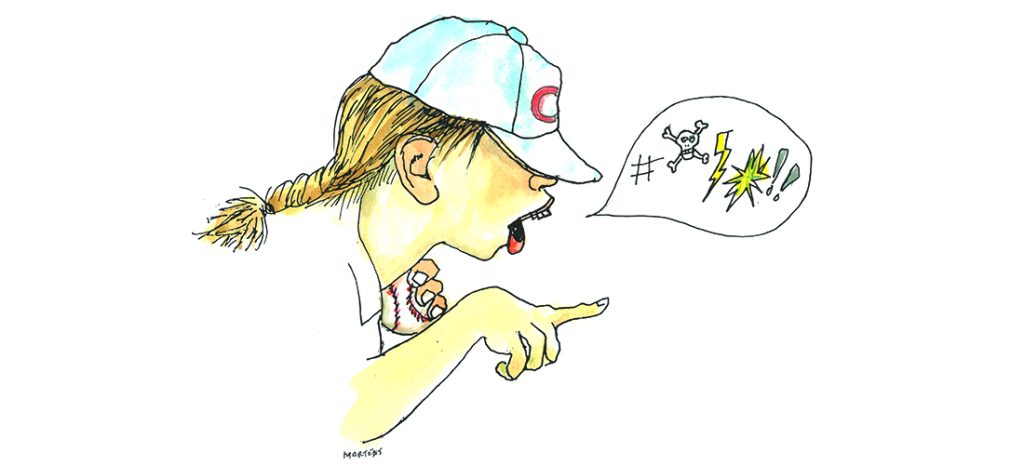Southwords

The Pinch Hitters
Now you see them, now you don’t
By Jim Moriarty
The year was 1959. I know this because my father, who was largely estranged from our family, took me to see the sensational new movie Al Capone, starring Rod Steiger. What 8-year-old kid can’t wait to see a gangster get his brains beaten in with a brick in dramatic black and white?
I was in my father’s charge that first week in May because my mother and both of my older brothers were off scouting colleges. It was a thing, even back in those days. My presence, under duress I’m sure, was not about to dissuade my father from his usual pursuits. The good news for me was that one of those pursuits involved watching the Chicago White Sox play the Boston Red Sox at Comiskey Park. Late in the game, a pinch hitter was announced. Ted Williams. My father leaned over to me and said, “Watch everything No. 9 does because one day you’re going to want to tell your children you saw him play.” I don’t remember a damn thing about what Williams did. I’m going to guess it wasn’t much, since 1959 was the only year of his career when he didn’t hit over .300. We were both in a slump, I guess.
Skip forward, if you’ll indulge me, to early May of 1974. A college friend of mine who was living in northern Michigan came south to visit, carrying a brown paper bag full of smoked chubs, and we bought tickets to watch the Atlanta Braves play the Chicago Cubs in Wrigley Field. The sky was pewter gray, and the low that day was 32 degrees. If it got over 50 in the afternoon, it couldn’t have been by much. The wind was howling off Lake Michigan, and attendance at the game was beyond meager. As the afternoon wore on — Wrigley didn’t have lights in those days — like an advancing glacier, folks just naturally inched closer and closer to the field. The ushers didn’t care. They were freezing, too.
My friend, his bag of smoked fish, and I finished the second half of the ball game in lovely seats right behind the first base dugout. Being a generous soul, he was passing his chubs up and down the row, sharing with anyone who wanted to sample this freshwater delicacy. Sitting next to us was an older man and a young girl, about the same age I had been that day long ago at Comiskey, who I took to be his granddaughter. Having skipped school in the middle of the week, she was a devout and vocal fan of the home team with a spanking new Cubs hat to prove it. Grandpa was equally enamored of smoked fish. It was a genial grouping of box seat interlopers.
Late in the day, the seventh or eighth inning, a pinch hitter was announced. It was Henry Aaron. Roughly a month before, Aaron had broken Babe Ruth’s home run record. When he came out of the dugout, swinging a bat to loosen up those old muscles, I leaned over toward the little girl and said, “Watch everything No. 44 does because one day, you’re going to want to tell your children you saw him play.”
I confess, recycling this bit of generational guidance made me feel rather fine and noble.
As swiftly as that bit of wisdom tumbled from my windchilled lips, that sweet little girl turned to me and, in language so colorful it would have made a tugboat captain faint, reinforced her undying love of the Cubs and her utter and complete disdain for anyone, including me, who might get in the way of a complete and total Chicago victory.
Fifteen years had passed and I was still in a slump. PS
Jim Moriarty is the Editor of PineStraw and can be reached at
jjmpinestraw@gmail.com.
